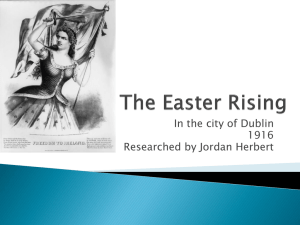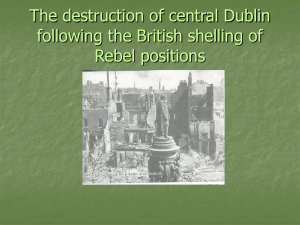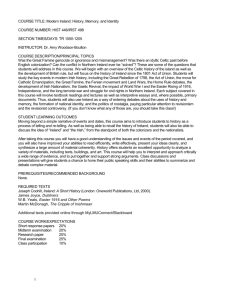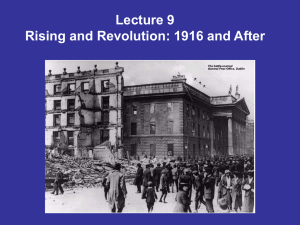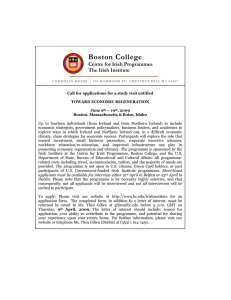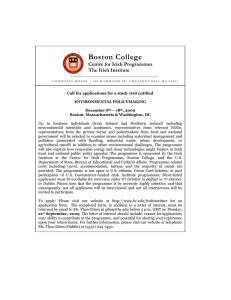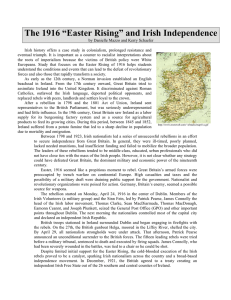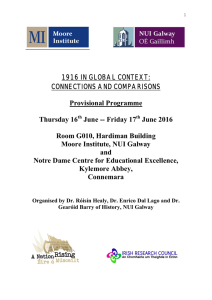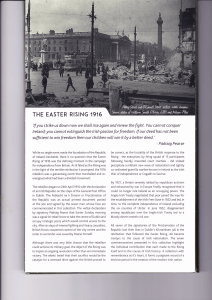Activity 2. Irish Girl Rebel Tells of Dublin Fighting (1916) Source: Instructions: Questions
advertisement
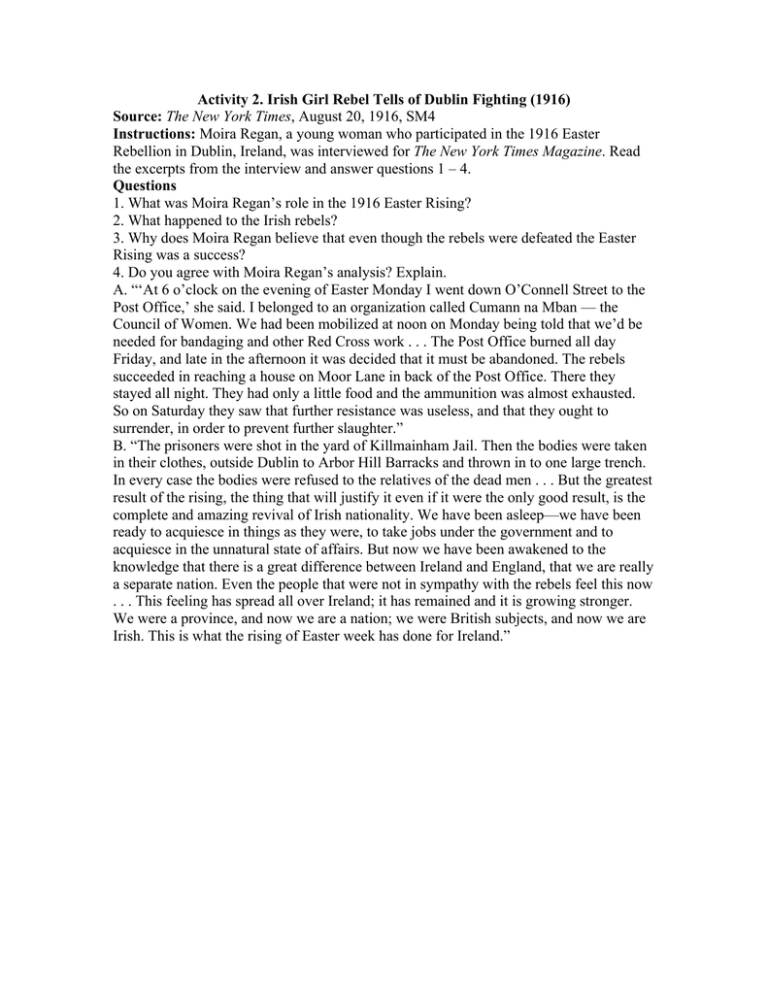
Activity 2. Irish Girl Rebel Tells of Dublin Fighting (1916) Source: The New York Times, August 20, 1916, SM4 Instructions: Moira Regan, a young woman who participated in the 1916 Easter Rebellion in Dublin, Ireland, was interviewed for The New York Times Magazine. Read the excerpts from the interview and answer questions 1 – 4. Questions 1. What was Moira Regan’s role in the 1916 Easter Rising? 2. What happened to the Irish rebels? 3. Why does Moira Regan believe that even though the rebels were defeated the Easter Rising was a success? 4. Do you agree with Moira Regan’s analysis? Explain. A. “‘At 6 o’clock on the evening of Easter Monday I went down O’Connell Street to the Post Office,’ she said. I belonged to an organization called Cumann na Mban — the Council of Women. We had been mobilized at noon on Monday being told that we’d be needed for bandaging and other Red Cross work . . . The Post Office burned all day Friday, and late in the afternoon it was decided that it must be abandoned. The rebels succeeded in reaching a house on Moor Lane in back of the Post Office. There they stayed all night. They had only a little food and the ammunition was almost exhausted. So on Saturday they saw that further resistance was useless, and that they ought to surrender, in order to prevent further slaughter.” B. “The prisoners were shot in the yard of Killmainham Jail. Then the bodies were taken in their clothes, outside Dublin to Arbor Hill Barracks and thrown in to one large trench. In every case the bodies were refused to the relatives of the dead men . . . But the greatest result of the rising, the thing that will justify it even if it were the only good result, is the complete and amazing revival of Irish nationality. We have been asleep—we have been ready to acquiesce in things as they were, to take jobs under the government and to acquiesce in the unnatural state of affairs. But now we have been awakened to the knowledge that there is a great difference between Ireland and England, that we are really a separate nation. Even the people that were not in sympathy with the rebels feel this now . . . This feeling has spread all over Ireland; it has remained and it is growing stronger. We were a province, and now we are a nation; we were British subjects, and now we are Irish. This is what the rising of Easter week has done for Ireland.”
